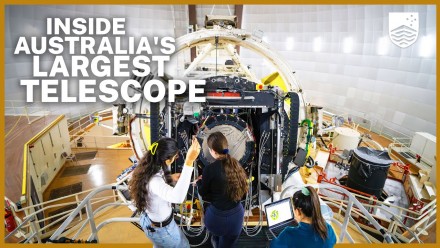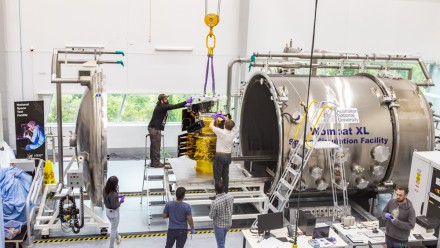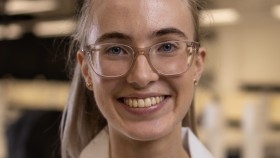Rebecca Davies
Like many undergraduate students at this time of year, Rebecca Davies is celebrating graduation.
But unlike most students, she will be leaving university with her name not only on a bachelor’s degree, but on more than half a dozen published papers.
The Bachelor of Philosophy (Honours) student from the ANU Research School of Astronomy and Astrophysics has already published three first author papers, has two more about to be submitted and is co-author on another three published papers. She has also spoken at seminars at the universities of Oxford and Cambridge.
“I had never imagined I could publish something as an undergrad,” Rebecca says. “But my supervisor encouraged me to, and hearing that from her motivated me to keep going. It’s just escalated from there.”
Rebecca credits the University’s PhB program for giving her “the most amazing opportunity” to dive into serious research so early in her academic career.
“If you’re interested in research, coming to ANU is definitely the best move you can possibly make. I’m not overselling it—that’s really what I think!
“At ANU, the small number of undergrads and the large number of academics really helps because each student has much more opportunity to be exposed to the research at a higher level.
“The professors are all so open and basically beg PhB students to come and do research for them. I was amazed. Honestly, so much of what I’ve achieved, I owe to my supervisor and her support. She has realised I have potential and invested in me and I’m really grateful for that.”
Rebecca’s honours research was on how stellar populations within galaxies are affected by massive black holes, a field she says she’s keen to keep exploring in her future research career.
“One of the difficult things about astronomy is that you’re looking at things so far away that there’s a constant challenge of trying to think of creative ways to get the information you need from very limited data available.
“That’s what really captures my imagination about astronomy: there’s just so much we don’t know.”















